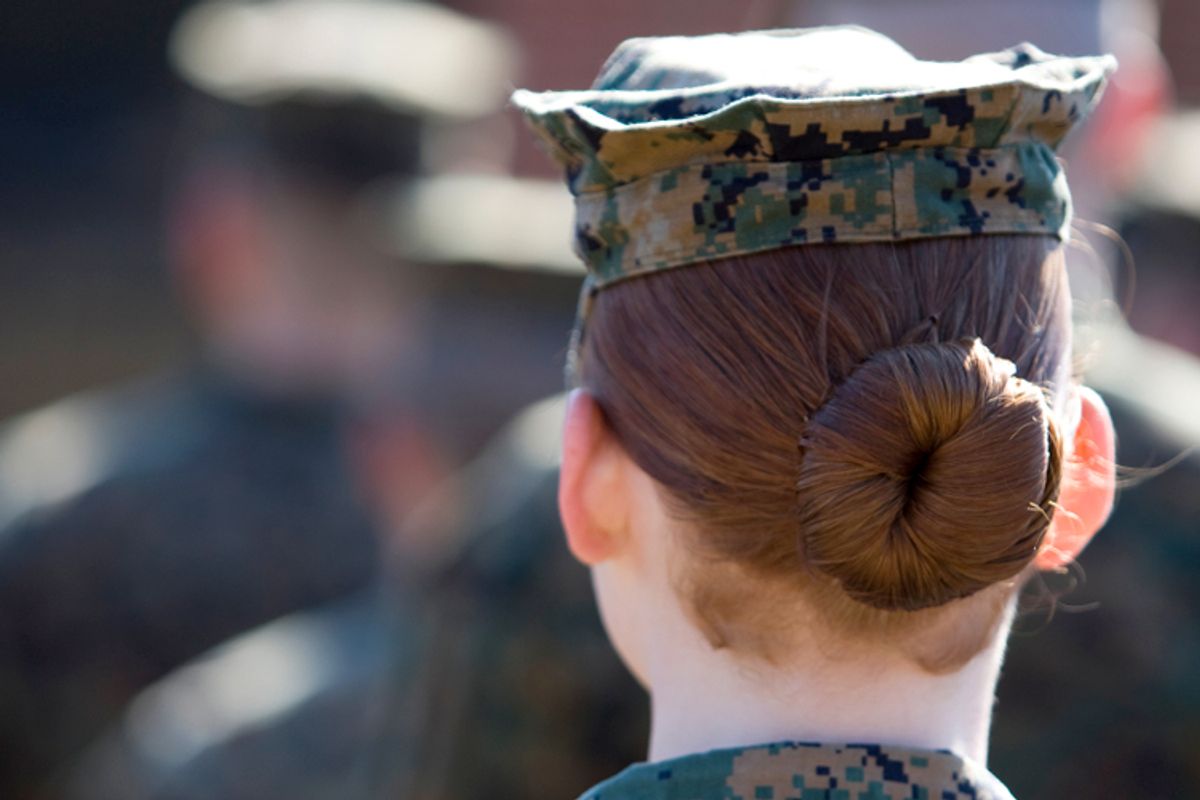Service members who report a sexual assault are 12 times more likely to experience some kind of retaliation than they are to see an attacker convicted, according to a report released Monday by Human Rights Watch. The report also found that certain protections in place to prevent or remedy retaliation have “yet to help a single service member whose career was harmed,” with alleged rapists having better recourse to correct their military records than victims.
“The U.S. military’s progress in getting people to report sexual assaults isn’t going to continue as long as retaliation for making a report goes unpunished,” Sara Darehshori, senior U.S. counsel at Human Rights Watch and co-author of the report, said in a statement. “Ending retaliation is critical to addressing the problem of sexual assault in the military.”
The report is based on interviews with more than 150 service members, both men and women, about barriers to reporting and retaliation they experienced after taking that already difficult step. Their stories range from social isolation and petty bullying to explicit death threats.
“A certain Sergeant in my platoon had told me he would kill me if we ever went to Afghanistan because ‘friendly fire is a tragic accident that happens,’” a soldier who reported being assaulted by a male soldier in 2012 said in the report. “After I had been there for a year, someone tried to knife me in a bar and kept screaming ‘DIE FAGGOT, DIE’ and that was when I told my Captain that I wanted a discharge before I ended up dead on the evening news which would be bad for him too.”
According to Pentagon estimates, there were 23,000 sexual assaults in the military in 2014. And more than 62 percent of servicewomen who reported unwanted sexual contact said that they faced some kind of retaliation as a result, whether it was being socially ostracized, intimidated or being subjected to a drop in rank.
The consequences of the current climate are pretty straightforward: when reporting a rape is more likely to get you punished or kicked out of the military than raping someone, service members don't report. And this will remain the case until current mechanisms in place to prevent retaliation are meaningfully enforced and other protections are added. But the United States may be a long way off from both.
From the report:
[O]ur research indicates that the six purported accountability mechanisms have not proven up to the task [of ending retaliation]. These are: reporting to the commander; reporting to a commander in another chain of command; reporting to a Sexual Assault Response Coordinator at another installation; filing a Military Equal Opportunity (MEO) Complaint; reporting to the Department of Defense inspector general; and punishing retaliators for failing to obey orders.
These mechanisms are not utilized, are ineffective, poorly understood, hamstrung by jurisdictional limitations, not sufficiently independent of command structures, mistrusted because they lead to new incidents of retaliation -- or all of the above. Further, little effort has been made to deter retaliation by holding wrongdoers accountable for their acts, despite a plethora of disciplinary options available to command.
One of those disciplinary options is to report retaliation through the Military Whistleblower Protection Act, passed nearly 30 years ago and updated in 2013. But the report couldn’t identify a single instance in which a member of the military had been helped by the law, despite an estimated 5,000 service members who had grounds to use it between 2004 and 2013.
Human Rights Watch obtained military records and found that the Department of Defense Inspector General received just 38 complaints from a victim of sexual assault during that time period -- and failed to substantiate a single one of them.
“When no one is held accountable for retaliation, it creates a hostile environment for all survivors, and sends a message to criminals that they can act with impunity” Don Christensen, president of Protect Our Defenders and former chief prosecutor of the U.S. Air Force, said in a statement.
And judging from the dismal numbers on sexual violence and the military, that message is coming through loud and clear.

Shares